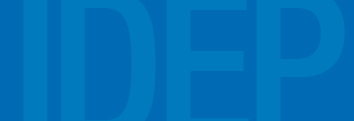Policy Research and Dialogues
The advanced policy research programme carried out at the Institute is inspired by and anchored on the African development agenda encapsulated in the work that the African Union symbolises and the varied needs of African governments as dictated by the differing circumstances of Member States. The nature of research conducted by IDEP research avoids a one-size-fits all generalisation and, at the same time, seeks to be relevant to and serve both continental and more localised needs. The programme aims to bring an African understanding to bear on global development processes, especially where a need exists for the articulation of scientific or intellectual perspectives from the continent that are organic to the policy concerns of governments and other development practitioners. Furthermore, in terms of approach, the research work is carried out by a mix of scholars and policy makers/policy intellectuals.
The policy research work of the Institute is undertaken in close collaboration and partnership with the offices of the various commissioners of the African Union (AU), the key operational divisions of the ECA, the research team under the leadership of the Chief Economist of the African Development Bank (AfDB), the eight Regional Economic Communities (RECs), relevant national economic ministries, and various specialised/sectorial national development agencies.
Policy Dialogues
Around the policy research work undertaken at the Institute, a series of policy dialogues are organised. These dialogues are convened on contemporary development themes and topics of sub-regional, regional or global interest for which either the articulation of African perspectives are required or an aggregation and harmonisation of viewpoints could serve the useful purpose of advancing policy and political action. The policy dialogues are broadly anchored on the African development agenda as agreed within the processes of the AU. These dialogues target high-level participants drawn from the regional and sub-regional institutions, national-level public institutions, the organised private sector, NGOs, the media, and various international development partners. The dialogues are animated by senior African academics and policy intellectuals with a first-hand knowledge of the themes covered.
